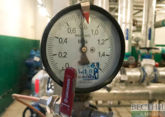Azerbaijan and Turkey have further strengthened their already close relations with the formal commissioning of the first Azerbaijani-built oil refinery in Turkey. Oil Price reports in its article Turkey And Azerbaijan Cement Relations With New Oil Refinery that for an estimated $6.3 billion, the new 10 million tons-per-year STAR refinery at Alia?a on Turkey's Aegean coast is one of the biggest foreign investment projects in Turkey and the country's first new refinery since 1986.
However, the refinery's formal opening on October 19 was marked by what was, by recent Turkish standards, an unusually low-key ceremony. Addressing the few hundred dignitaries in attendance, Azerbaijan President Ilham Aliyev praised the policies of Turkish President Recep Tayyip Erdogan and the strength of relations between the two countries. “The stronger Turkey is, the stronger we are,” he said. For his part, Erdogan praised the strength of Turkish relations with its eastern neighbor, repeating the bilateral mantra of "one nation, two states.”
"With the STAR refinery, we have further strengthened the strategic dimension of our brotherly relations with Azerbaijan," he said announcing that the refinery was to be the first recipient of Turkey's new “Strategic Investment Incentive Certificate,” a license aimed at facilitating further investment.
Erdogan added that the new refinery will reduce Turkey's import bill for petroleum products by around $1.5 billion. In that respect, the commissioning of the new refinery comes at a particularly important juncture.
In the wake of the economic crisis which saw the Turkish lira lose 40 percent of its value over the first eight months of the year, Ankara has been desperately trying to reduce dependence on imports in an effort to bring down the country's sizable current account deficit.
The new refinery will supply 4.8 million tons per year of diesel, replacing a third of the volume Turkey imported last year, and overall will meet around 36 percent of Turkey's current petroleum product imports.
"The refinery, depending on oil prices, will generate trade value of $6-8 billion annually,” Azerbaijani MP Tahir Mirkishili told the Azerbaijani news site Trend, adding that once it is complete, SOCAR's investments in the Turkish economy will reach $19.5 billion.
“Azerbaijan, which is building a regional economy, will further increase its economic power with these projects,” he said.
The new refinery also locks Turkey and Azerbaijan into what will be a long term economic relationship.
“The opening of such a fundamental plant of strategic importance… showed that our states play a major role in ensuring security and stability in the region," Togrul Ismayil professor of International Relations at Istanbul's TOBB University of Economy and Technology, told the Azerbaijani news site Trend.
Azerbaijan will not, however, supply oil to the refinery: its own "Azeri light" crude, which is shipped through Turkey via the Baku-Tbilisi-Ceyhan oil pipeline, commands premium prices on global markets, so SOCAR plans to supply the STAR refinery from other regional suppliers.
But Turkey's crude oil imports have lately been complicated by ongoing regional tensions and Ankara's sometimes confrontational foreign policy.
SOCAR has already inked a one-year deal with Russia's Rosneft for the supply of 1 million tons of crude over the coming year.
However, as that meets only around 10 percent of STAR's annual requirement, SOCAR will need to secure other major suppliers – a process which appears more complicated than it did when the construction of the refinery commenced three years ago.
The past year alone has seen Washington announce the re-imposition of sanctions against Iran – Turkey's main supplier of crude for most of the past decade – and demand that Turkey reduce its imports.
Similarly, last year's independence referendum in Iraq's Kurdistan region met with Ankara's strong disapproval and saw Turkey's existing refineries sharply cut imports of Iraqi crude, which are shipped via a pipeline through the breakaway province.
And it appears likely that the current spat between Turkey and Saudi Arabia over the murder of Saudi journalist Jamal Khashoggi will result in a drop in Turkish crude imports from that country, too. Other potential regional crude suppliers exist, but as recent history has demonstrated, so do potential risks.










